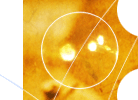














Trees within the order Fagales possess particularly potent allergens, e.g. the prototypical Bet v 1, the major white birch (Betula 💱 verrucosa - now called B. pendula) pollen antigen. Bet v 1 is the main cause of type I allergies observed 💱 in early spring. Type I, or immunoglobulin E-mediated (IgE-mediated) allergies affect 1 in 5 people in Europe and North America. 💱 Commonly observed symptoms are hay fever, dermatitis, asthma and, in severe cases, anaphylactic shock. First contact with these allergens results 💱 in sensitisation; subsequent contact produces a cross-linking reaction of IgE on mast cells and concomitant release of histamine. The inevitable 💱 symptoms of an allergic reaction ensue. Categorization [ edit ] A nomenclature system has been established for antigens (allergens) that cause IgE-mediated 💱 atopic allergies in humans.[2] This nomenclature system is defined by a designation that is composed of the first three letters 💱 of the genus; a space; the first letter of the species name; a space and an Arabic number. In the 💱 event that two species names have identical designations, they are discriminated from one another by adding one or more letters 💱 (as necessary) to each species designation. The allergens in this family include allergens with the following designations: Bet v 1, Dau 💱 c 1, and Pru a 1. Other proteins belonging to this family include the major pollen allergens: Structure [ edit ]




























